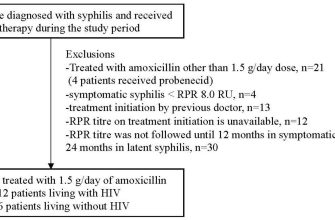Consult your doctor before starting or altering any medication regimen. Metformin is a first-line treatment for type 2 diabetes, improving blood sugar control by reducing glucose production in the liver and improving insulin sensitivity.
How Metformin Works
Metformin’s primary mechanism involves inhibiting hepatic glucose production. It also enhances insulin sensitivity in peripheral tissues, improving glucose uptake by muscles and fat cells. Studies show this dual action leads to lower fasting and postprandial glucose levels.
Common Side Effects & Management
- Gastrointestinal issues: Nausea, diarrhea, and abdominal discomfort are common. These often subside with gradual dose increases or taking the medication with food.
- Vitamin B12 deficiency: Long-term use can interfere with B12 absorption. Regular blood tests and potential supplementation are recommended.
- Lactic acidosis: A rare but serious side effect, especially in individuals with kidney impairment. Regular kidney function monitoring is necessary.
Mild side effects usually improve over time. Severe side effects require immediate medical attention.
Dosage and Administration
Your doctor will determine the appropriate dosage based on your individual needs and health status. Typical starting doses are low and gradually increased to maximize effectiveness and minimize side effects. Always follow your physician’s instructions precisely.
Drug Interactions
- Metformin interacts with certain medications, including some diuretics and certain contrast dyes used in medical imaging. Always inform your doctor of all medications, supplements, and herbal remedies you are taking.
- Alcohol consumption can increase the risk of lactic acidosis. Moderate your alcohol intake while on Metformin.
Monitoring & Follow-up
Regular blood glucose monitoring and HbA1c tests are essential to track treatment effectiveness. Your doctor will schedule regular check-ups to monitor your response to Metformin and adjust the dosage or treatment plan as needed. Open communication with your physician is crucial for optimal health management.
Beyond Blood Sugar: Other Potential Benefits
Research suggests potential benefits beyond diabetes management, including a possible reduction in cardiovascular risk in some individuals. Further research is ongoing to fully understand these potential effects. However, it is critical to remember that Metformin is primarily prescribed for diabetes management.
Important Disclaimer
This information is for educational purposes only and does not constitute medical advice. Always consult your doctor or other qualified healthcare professional before starting any new medication or making changes to your existing treatment plan.
Interactions with Other Medications and Foods
Metformin can interact with several medications and foods, potentially altering its effectiveness or causing side effects. Always inform your doctor about all medications, supplements, and herbal remedies you take.
Medication Interactions
Alcohol: Combining metformin with alcohol increases the risk of lactic acidosis, a serious, potentially fatal condition. Avoid excessive alcohol consumption while taking metformin.
Diuretics: Some diuretics can increase the risk of dehydration, which can exacerbate metformin-related side effects. Monitor hydration levels closely.
NSAIDs (Non-Steroidal Anti-Inflammatory Drugs): NSAIDs like ibuprofen and naproxen can reduce the effectiveness of metformin and may increase the risk of kidney problems. Your doctor might adjust your metformin dose or recommend an alternative.
Contrast dyes: Metformin should be stopped temporarily before and after certain medical imaging procedures using contrast dyes, as this combination may increase the risk of kidney failure. Your doctor will provide specific instructions.
Beta-blockers: The combination of metformin and some beta-blockers may mask the symptoms of hypoglycemia (low blood sugar), which is a potential side effect of metformin. Careful monitoring of blood sugar is advised.
Food Interactions
Grapefruit: Grapefruit and grapefruit juice inhibit the enzymes that metabolize metformin. This can lead to elevated metformin levels in the blood, increasing the risk of side effects. Limit grapefruit consumption while taking metformin.
High-fat meals: High-fat meals may slightly delay the absorption of metformin. This isn’t usually a major concern but should be noted.
Disclaimer: This information is for educational purposes only and does not constitute medical advice. Always consult your doctor or pharmacist for personalized guidance on medication interactions and safe use of metformin.










